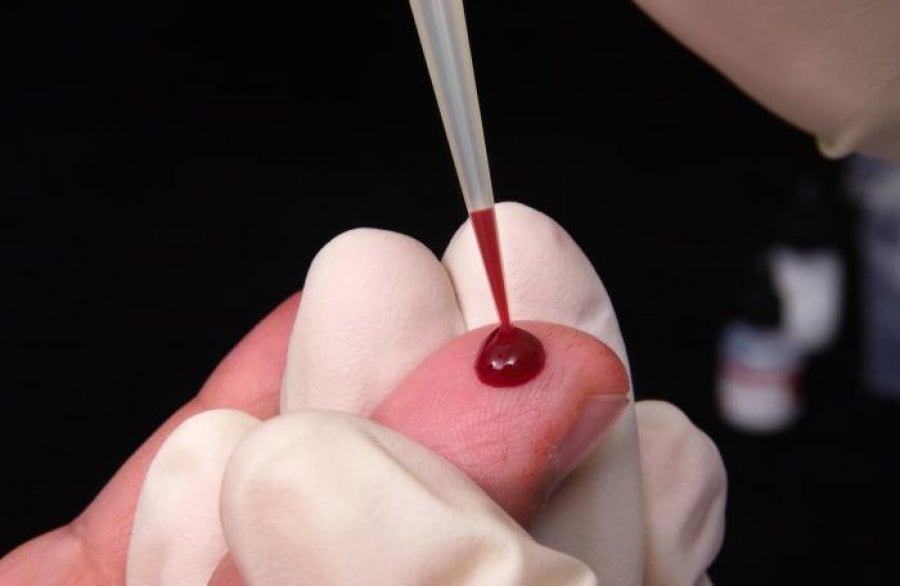GP-based testing for HIV is cost-effective and should be rolled out in 74 local authorities
31 July 2017 London School of Hygiene & Tropical Medicine London School of Hygiene & Tropical Medicine https://lshtm.ac.uk/themes/custom/lshtm/images/lshtm-logo-black.png
Involving 86,000 people from 40 GP surgeries, the study was led by the London School of Hygiene & Tropical Medicine and Queen Mary University of London (QMUL). The researchers are calling on healthcare commissioners to invest urgently in the roll out of HIV screening to all 74 high HIV prevalence local authorities in England (those with more than two diagnosed HIV infections per 1,000 adults).
People with HIV have a near normal life expectancy if they are diagnosed early and receive treatment. However, in the UK around 13,500 people do not know that they have HIV, meaning they miss out on treatment, remain infectious to others and become more expensive to treat in the future.
HIV treatment is expensive and more testing could potentially further increase costs. Healthcare planners need reliable estimates of cost-effectiveness of screening but estimates are few, and until now have not been based on robust data from randomised controlled trials.
Dr Rebecca Baggaley, lead author of the study and Honorary Assistant Professor at the London School of Hygiene & Tropical Medicine, said: “Thousands of people in the UK do not know they have HIV. This means they don’t have access to drugs to fight the virus, and of course they can still pass HIV on to others. Our study showed that over 40 years, primary care-based HIV screening in high prevalence areas would give value for money to the NHS and its patients. In these parts of England, HIV tests should be routinely offered during the standard check-up given to people when they join a new GP surgery.”
The study examined data from an earlier research trial in Hackney - a socioeconomically deprived inner London borough with an HIV prevalence rate of 8 per 1000 adults. The trial involved 40 general practices where they tested the effect of rapid fingerprick HIV testing as part of the standard health check during registration. They found it led to a four-fold higher HIV diagnosis rate.
Using a mathematical model that includes all the costs associated with HIV testing and treatment, the team showed that primary care HIV screening in high prevalence settings becomes cost-effective in 33 years, according to National Institute for Health and Care Excellence (NICE) criteria.
Currently NICE uses a threshold of £20,000 to £30,000 per Quality Adjusted Life Year (QALY), a widely used measure of health that combines length and quality of life, to gauge whether the health benefits of an intervention offer value for money to the NHS and its patients. The researchers found over 40 years, primary care-based HIV screening in high prevalence areas would cost an estimated £26,626 per QALY gained and therefore warrants funding in the UK.
Factoring in the higher costs of care for people whose HIV is diagnosed late, they were able to predict that HIV screening could become cost-effective far sooner than this, and may even become cost-saving if the long-term healthcare costs of late-diagnosed patients are much higher than those of patients diagnosed earlier, as has been observed in Canada.
Eleven authorities have HIV prevalence similar to Hackney and 74 of 325 authorities in England are defined by NICE as high prevalence and could benefit from screening. The estimated annual cost of rolling out the screening programme to all 11 Hackney-level HIV prevalence authorities would be approximately £600,000 (£4 million for roll-out to all 74 high prevalence authorities). This does not include increased healthcare costs resulting from earlier HIV diagnosis and treatment which would fall under other NHS budgets.
Dr Werner Leber from QMUL said: “We’ve shown that HIV screening in UK primary care is cost effective and potentially cost saving, which is contrary to widespread belief. This is an important finding given today’s austerity. Financial pressures, particularly within local authority’s public health budgets, mean that the costs of HIV testing are under intense scrutiny, and in some areas investment in testing has fallen.”
The authors acknowledge limitations of the study including on some of the data, such as the probability of viral transmission to partners and quality of life, which have been estimated based on international literature and may therefore not accurately reflect the Hackney situation.
The study was funded by NHS City and Hackney and UK Department of Health, and involved University College London, Homerton University Hospital NHS Foundation Trust, University of Warwick, and University of British Columbia.
Publication
Rebecca F Baggaley, Michael A Irvine, Werner Leber, Valentina Cambiano, Jose Figueroa, Heather McMullen, Jane Anderson, Andreia C Santos, Fern Terris-Prestholt, Alec Miners, T. Déirdre Hollingsworth, Chris J Griffiths. Cost-effectiveness of screening for HIV in primary care: a health economics modelling analysis. The Lancet HIV. DOI:10.1016/S2352-3018(17)30123-6
Our postgraduate taught courses provide health practitioners, clinicians, policy-makers, scientists and recent graduates with a world-class qualification in public and global health.
If you are coming to LSHTM to study a distance learning programme (PG Cert, PG Dip, MSc or individual modules) starting in 2024, you may be eligible for a 5% discount on your tuition fees.
These fee reduction schemes are available for a limited time only.